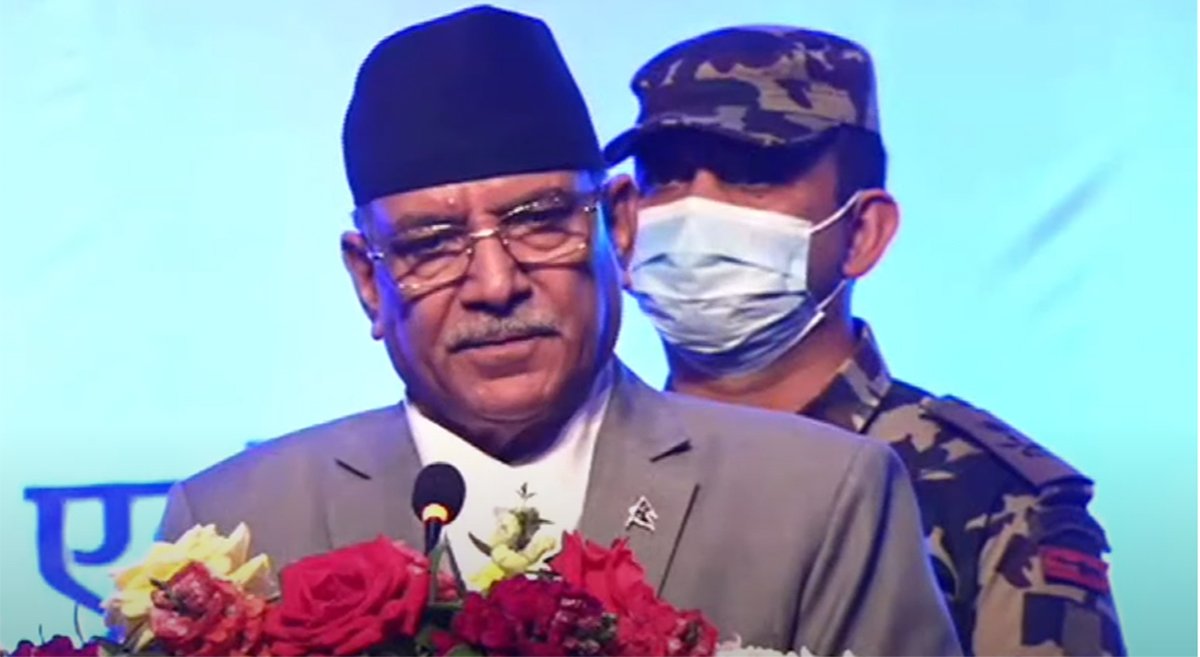Khadka named acting NC acting president
Nepali Congress designated Vice-President Purna Bahadur Khadka as the acting president of the party in the absence of President Sher Bahadur Deuba. Khadka is also the Chief of Central Policy, Research and Training Academy of the party. Khadka has been assigned as the party acting president on the recommendation of President Deuba, party office chief secretary Krishna Prasad Poudel said. NC President and former Prime Minister Deuba has left for Singapore for routine health follow-up. Khadka would take charge of the party as acting president until the return of Party President Deuba.
President Paudel discharged from hospital
President Ram Chandra Paudel has been discharged from the hospital on Wednesday after routine checkups and treatment. President Paudel was discharged from the Bansbari-based Shahid Gangalal National Heart Centre this morning after a health examination followed by observation for 24 hours, Hospital's Executive Director Dr Chandramani Adhikari said. According to Dr Adhiakri, President Paudel’s health condition is normal now. He was admitted to the hospital on Tuesday after he complained of chest pain.
Show cause notices against Dahal, Bhattarai
The Supreme Court has issued separate show cause notices to the then Maoist supremo Pushpa Kamal Dahal ‘Prachanda’ and his second-in-command Baburam Bhattarai in response to a petition against the forced conscription of child soldiers during the Maoist insurgency that began on 13 Feb 1996 and ended with the signing of the Comprehensive Peace Accord on 21 Nov 2006. A single bench of Justice Sapana Pradhan Malla, conducting a preliminary hearing on the writ from nine child soldiers, including Lenin Bista, demanded written clarifications from the defendants, putting the case on priority. It has given Dahal, the current prime minister and chair of the CPN (Maoist Center), and former Maoist leader and prime minister Bhattarai 15 days to furnish written clarifications on the charges leveled against them in the petition. The two leaders can furnish their clarifications before the court in person or send in their legal representatives through the power of attorney. On medical grounds, they can get a further 15 days for furnishing clarifications. Bista and others had moved the apex court accusing the former rebels of committing war crimes by forcing minors to join military activities in contravention of national as well as international human rights laws. Constitutional law expert Ananta Raj Luitel says the court can initiate legal action against the defendants if they fail to come clean on the charges. On May 30, the apex court administration had refused to entertain the former child soldiers’ petition, pointing out that transitional justice mechanisms overseeing war-era cases are supposed to look into this case also. But a single bench of Justice Anand Mohan Bhattarai had ordered the court staff to register the petition against Dahal and Bhattarai. The verification of former PLA combatants, which the United Nations Mission in Nepal had conducted in 2007 for integrating former rebel soldiers into the Nepali Army, had disqualified thousands of Maoist combatants, including Bista, for being minors. Of the 4,008 disqualified combatants, 2,973 turned out to be minors while the remaining 1,035 were found to have joined the Maoist ‘People’s Liberation Army’ after the first ceasefire of 26 May 2006—six months before the signing of the Comprehensive Peace Agreement between the government of Nepal and the Communist Party of Nepal (Maoist) in 2006. The government had provided Rs 500,000-Rs 800,000 each to combatants opting for voluntary retirement, whereas the child soldiers had received token assistance from the United Nations.
NA Chair Timilsina, NPC Standing Committee Chair Zhao hold meeting
National Assembly (NA) Chairperson Ganesh Prasad Timilsina, who is presently on an official visit to China, held a meeting with Chairman of the Standing Committee of the National People's Congress (NPC), Zhao Leji on Monday. During the meeting held at the Great Hall of the People in Beijing, the NA Chair highlighted the cordial and deeper ties between Nepal and China since centuries. "Nepal and China are closely connected by culture and customs," he said, expressing his hope that the bilateral relations would further grow in the days to come. Stating that Nepal treated China as a close and good neighbor and a major development partner, he said relations with China were always the top priority of Nepal. "Nepal is always in favor of a one-China policy." Lately, the legislative relations between Nepal and China have been further extended, according to the NA Chair who expressed his happiness over China's decision to incorporate Nepal in its Outbound Tourists Group. He utilized the forum to communicate with the Chinese side that the operation of Pokhara International Airport funded by China as a loan assistance was capable of contributing significantly to Nepal's tourism market, expressing his hope to see the operation of direct flights from Pokhara to various towns in China in the future. He also urged China to ease the exports of vegetables, meat products, tea leaves and herbs from Nepal to China. On the occasion, NPC Standing Committee Chair Zhao said China was ready to operate a direct flight from Chengdu to Pokhara from June 21. The NA Chair currently leads a nine-member Nepali parliamentary delegation to China and he is scheduled to address the Fifth China-Tibet Tourism and Cultural Expo to be held in Lhasa of Tibet on June 16-17 as a chief guest. House of Representatives members Jeevan Pariyar, Dhawal Shumsher JB Rana and Pradeep Yadav and NA members Uday Bahadur Bohara, Dipa Gurung and Hariram Chaudhary are among the members in his delegation.


















